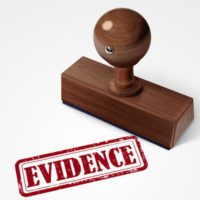Newly-Discovered Evidence, and other Grounds for Retrials

Being convicted of a felony is a major life-changing event. The single fact that a convicted felon will spend at least one year in prison will substantially interfere with his/her life, as well as the lives of those who may depend upon that person. Unfortunately, not all convictions are justified, and exculpatory evidence may come to light that bolsters this claim and calls for a new trial. In addition, substantial error in the original trial may convince an appellate court to order a new trial as well. Engaging the services of an experienced criminal defense attorney can help make these arguments, which can, if done correctly, lead to acquittal and release. Recently, the Supreme Judicial Court of Massachusetts ordered a retrial of a man previously convicted of murder based on the affidavit of a woman (who died of cancer soon after making the affidavit), who admitted the Commonwealth’s star witness could not have witnessed the man convicted commit the murder, because she and the witness were in another room of the apartment. No one should face wrongful conviction, and a discussion of several bases for the retrial of a felony conviction will follow below.
Bases for Retrial
In the vast majority of criminal matters, cases are settled prior to trial, meaning they are either resolved through plea bargains or dismissals. Like most legal actions, only a relatively small number of cases make it to trial. Similarly, while many criminal matters are appealed, only very few are ordered to be retried. Further, ordering a retrial can be very tricky, given the U.S. Constitution’s Fifth Amendment prohibition against double jeopardy (trying a person more than once for the same crime). However, like the matter discussed above, there are times in which courts, and the law, have held that a retrial can be held, and not violate the Fifth Amendment.
Mistrials
One example of these situations is when a judge declares a mistrial. Mistrials occur when a jury is deadlocked, and cannot agree as to whether the defendant is guilty or innocent. In the vast majority of criminal cases, and the case in Massachusetts, criminal defendants must be found guilty by every juror (a majority will not work). Similarly, criminal defendants must be found innocent by every juror. If there is no unanimity, and the jury indicates to the judge that they cannot reconcile their disagreements, the judge may declare a mistrial and allow the prosecutor to retry the defendant. Additionally, a mistrial may be declared if circumstances beyond the control of the parties involved (judge, jury, prosecution, defense) cause an injustice or procedural roadblock. An example of this would be if there are too few jurors left to hear the case. Because a final verdict is never rendered, a retrial would be permitted.
Prosecutorial Misconduct
Another situation involves prosecutorial misconduct. In some cases, a prosecutor may violate, even if slightly, the rules of court and evidence, and his/her tactics and courtroom behavior may result in a judge ordering a retrial. Typically, in this case, a different prosecutor will try the new case.
Inadmissible Evidence
After conviction, double jeopardy also can affect whether a verdict based on inadmissible or insufficient evidence would result in a retrial following an appeal, or dismissal of the case. Specifically, a successful argument that the evidence used against a defendant should be inadmissible will most likely result in a new trial, so that a jury can make a decision based only on admissible evidence. If, however, the remaining evidence is insufficient to sustain the conviction, an experienced criminal defense attorney will work to have the defendant acquitted on retrial.
Seek Legal Advice
If you, or a loved one, has been convicted of a felony, and you believe there is evidence out there that will exonerate you, speak to an experienced criminal defense attorney as soon as possible. In fact, it will behoove you to speak to an experienced defense attorney the moment you are charged with a felony. The attorneys at Leontire & Associates, P.C. have the experience necessary to analyze your case, and help build the best defense possible. Contact our Boston office today.
Resource:
theadvocate.com/new_orleans/news/crime_police/article_a2c372a6-7a3a-11e8-8b21-f39ea42153ee.html

